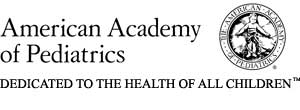

Vomiting and Spitting Up
First of all, there's a difference between real vomiting and just spitting up. Vomiting is the forceful throwing up of stomach contents through the mouth. Spitting up (most commonly seen in infants under 1 year of age) is the easy flow of stomach contents out of the mouth, frequently with a burp.
Vomiting occurs when the abdominal muscles and diaphragm contract vigorously while the stomach is relaxed. This reflex action is triggered by the "vomiting center" in the brain after it has been stimulated by:
Causes of Spitting Up
The common causes of spitting up vary according to age. During the first few months, for instance, most infants will spit up small amounts of formula, usually within the first hour after being fed. This "cheesing," as it is often called, is simply the occasional movement of food from the stomach, through the tube (esophagus) leading to it, and out of the mouth. It will occur less often if a child is burped frequently and if active play is limited right after meals. This spitting up tends to decrease as the baby becomes older but may persist in a mild form until 10 to 12 months of age. Spitting up is not serious and doesn't interfere with normal weight gain.
Causes of Vomiting
After the first few months of life, the most common cause of vomiting is a stomach or intestinal infection. Viruses are by far the most frequent infecting agents, but occasionally bacteria and even parasites may be the cause. The infection also may produce fever, diarrhea, and sometimes nausea and abdominal pain. The infection is usually contagious, so if your child has it, chances are some of her playmates also will be affected.
Occasionally, infections outside the gastrointestinal tract will cause vomiting. These include infections of the respiratory system, infections of the urinary tract, otitis media and pneumonia, as well as meningitis, appendicitis and Reye syndrome.
Warning Signs of Vomiting
Some conditions that cause vomiting require immediate medical treatment, so be alert for the following trouble signs, whatever your child's age, and call your pediatrician if they occur.
The recommendations in this statement do not indicate an exclusive course of treatment or serve as a standard of medical care. Variations, taking into account individual circumstances, may be appropriate.